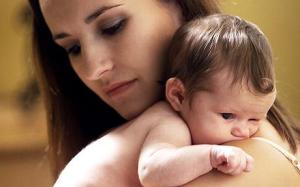“That they may teach the young women to be sober, to love their husbands, to love their children, To be discreet, chaste, keepers at home, good, obedient to their own husbands, that the word of God be not blasphemed.”
Titus 2: 4-5
For many LDS females, becoming a wife and mother is something that they look forward to from the time they are little girls playing house with their Barbies and stuffed animals. I will admit, on one hand I feel very unqualified to even speak on the subject of motherhood. For starters, I’m not, nor have I ever been a mother. I’ve been an Aunt, a babysitter, and a taker-in of stray animals, but never a mother. Secondly, and as some of you might already know, I have never really wanted to be a mother. Even when I was a little girl I would have rather played with my stuffed Dragon Darcy, than a life-like baby doll. I was certainly interested in playing house, because it meant I got to be married to a handsome and dashing young man, but never in any of my fantasies did I picture a little bundle of joy to go along with the rest of the package.
On the other hand, perhaps it is because I have never wanted children that I am well suited to write on the subject. This topic could quickly turn ugly, and I don’t want for this to become a debate, just more of an open ended question. Since I don’t have a horse in the race, so to speak, my hope is that I can touch upon both sides of the fence in an attempt to reach a greater level of understanding. So what is it exactly that we are talking about?
The other day I was sitting with a girlfriend of mine, who is as of yet unmarried. She is attractive, bright, educated, and she has a full time job that provides her a very comfortable life. She feels as though her life is pretty much everything she ever wanted, with one glaring exception….Motherhood. Even though my friend goes on more dates than almost anyone I know, she struggles to find any kind of long lasting relationship. There could be a million reasons for this, and those reasons aren’t really relevant to this conversation, so I will just leave it at that. My friend is like SO many other unmarried LDS women I know. These are the women who are in their early to mid to late 30’s who, for whatever reason, have been unable to get married. These are also the same women who have wanted nothing more than to be mothers their whole lives. My heart bleeds for these women, and I wish at moments that I could give them a portion of my seeming lack of material desire, just to take the edge off for a moment.
But no matter how amazing their lives are, no matter how successful in the business world, or how many friends they have, or how rich and satisfying their social and spiritual lives are, they still feel this gaping hole that they believe can only be filled by becoming a mother. My friend is this kind of woman, and so while we were talking I asked her offhandedly (and more joking than serious) if she would ever consider just having a baby on her own. Her response took me aback when she looked me straight in the eyes and said,
“If I don’t get married within the next 5 to 7 years, I am going to have a baby regardless.”
Whoa.
I didn’t know how to feel about it…To be honest, I still don’t.
On one hand I see it from her perspective:
She is a successful woman who could easily provide for a child from a monetary stand point. She is also one of the most loving and nurturing people I know, so there is no doubt in my mind that she would make an amazing mother, and if children are that important to her, than I suppose who am I, or anyone else for that matter, to tell her not to?
I think of my sweet aunt Katie, who basically was a second mother to me and my siblings while we were growing up, though she never married or had children of her own. She is now in her late 60’s, disabled, and living in a home. I try to get out to see her as often as I can, and every time I do, a little voice in my head tells me that if I don’t hurry up, get married, and have children, then this is going to be my future. The feeling that follows that thought is never pleasant, and it is in these moments alone that I seriously consider this whole I don’t want kids thing. This is not to say that people do or ought to have children just so that they will have someone to take care of them when they are too old to take care of themselves, but it certainly is at least one of the reasons why many choose to have children. Nobody wants to die alone and forgotten in some rest home, and even though having children doesn’t necessarily guarantee that this won’t still happen, it certainly improves your odds of always having someone who will love and care for you.
The choice to become a mother or father is a very personal one. As a country and a culture, we don’t tell people when they can or cannot have children, nor do we tell them how many or of which gender they are allowed. We don’t disqualify based on income or mental stability (although some argue we should), and now we are moving into a era where we are starting to back off on only allowing children to go to “traditional” homes. Non-Traditional homes are becoming more and more prevalent, including same sex couples, single parent, and even communal households. I suppose the question then becomes this….
In order for a child to have the best chance of growing up happy and healthy, is a two parent mixed gender household the best environment? Or put another way…Is it the only way of ensuring that you are going to raise a healthy and well-balanced child?
If the answer to this question is yes, then it makes sense that we as a culture and as a church, would fight to defend the traditional dynamic, and if this is true, then it would make sense that the church would discourage women like my friend from having babies outside of marriage because it diminishes the child’s full potential for nurturing.
I don’t think that I need to go too deeply into the other side of the argument, because it is a side that is already well-know and understood to be “the ways things are done”. God’s eternal plan for His children is to come to earth, gain a body, form families, and increase their posterity within the gospel. The plan of salvation is based upon the notion that we are going to be with our families forever, and that with our companions, we will create worlds of our own, the same way that our Father in Heaven has done for us. With all of that doctrine already so firmly in place, it is hard to imagine that the church (meaning those who are in authority) would ever encourage or even condone a woman who wants to go at it alone.
I’m not saying that is this right or wrong, just what I see being the most likely.
There was a talk given not too long ago in conference I believe that talks about the difference between good, better, and best. I appreciated this concept because it attempts to take things out of the often black and white realm that we like to throw them into, and instead tries to explain how choices are rarely merely Good or Bad.
For example, there are thousands of children in the foster care system who need loving homes. For the purpose of this example we will assume that a traditional mix-gender home is optimal for child rearing. So now let’s say that there are 4 applications that come into an adoption agency looking to take home a child. They are all good people, mentally and emotionally healthy, and financially fit. One couple is traditional, one is same-sex, one is a polygamous couple, and the other is a single female. The agency now has a choice to make, do they give children to all of the applicants, or do they only give a child to the traditional couple so that the child will have the “best” chance at a happy life?
The problem here is that if they use this model, then true, one out of those four children will have a chance a loving home and a happy life, but now you have left 3 children in a system where they will have no chance at any kind of stable home. In terms of Good, Better, and Best, while it may be true that a traditional home is Best, does that mean we should deny the Good and the Better? I have a family that believes in adoption and I can tell you from experience, that all of the foster kids I have talked to would take a non-traditional loving home over no home at all any day of the week.
But that is adoption, and children who are already here are different from children that have yet to be brought into this world….So does it change the argument?
A single parent or non-traditional home might not be ideal or Best, but neither are a lot of traditional homes. As a child of divorce, I can tell you that I would have been much happier if I had been allowed to be raised by just one parent as opposed to constant war I lived through that came from the combination of my mother and father. This is of course, an opinion with no scientific backing, and perhaps I underestimate the pro’s despite the con’s. I am fairly certain about one thing though, and that is that children, people, need unconditional love in order to grow up into happy healthy adults. Being in a traditional home does not automatically guarantee that this will happen, and conversely, being in a non-traditional home does not automatically guarantee that it won’t.
Is is Best that a woman wait only if/until she is married to have children? Maybe, but even if that is true, does that therefore mean that the potential of Better be entirely thrown out? At the end of the day, I do believe that it is most important to put the needs of the children above the needs of our own. If we are going to have children, regardless of our situation be it traditional or non-traditional, the question we should all be asking is, Do I feel as though I (we) are able to provide this helpless child who is dependent on me (us) for everything with all that they will need to grow up into a happy healthy adult?
In the end, I suppose that is a question that only the one asking it can answer for themselves, and though this question might, on it’s surface, seem very black and white, I think it is worth more exploration by people who have more light and understanding of such topics.
*Featured image by Peter Shanks


Voltaire (doubt he’s been quoted in General Conference) is attributed (thanks, Wikipedia!) to have coined the aphorism “the perfect is the enemy of the good.” This may mean that waiting for Best means that we miss out on Good or Better as time goes by.